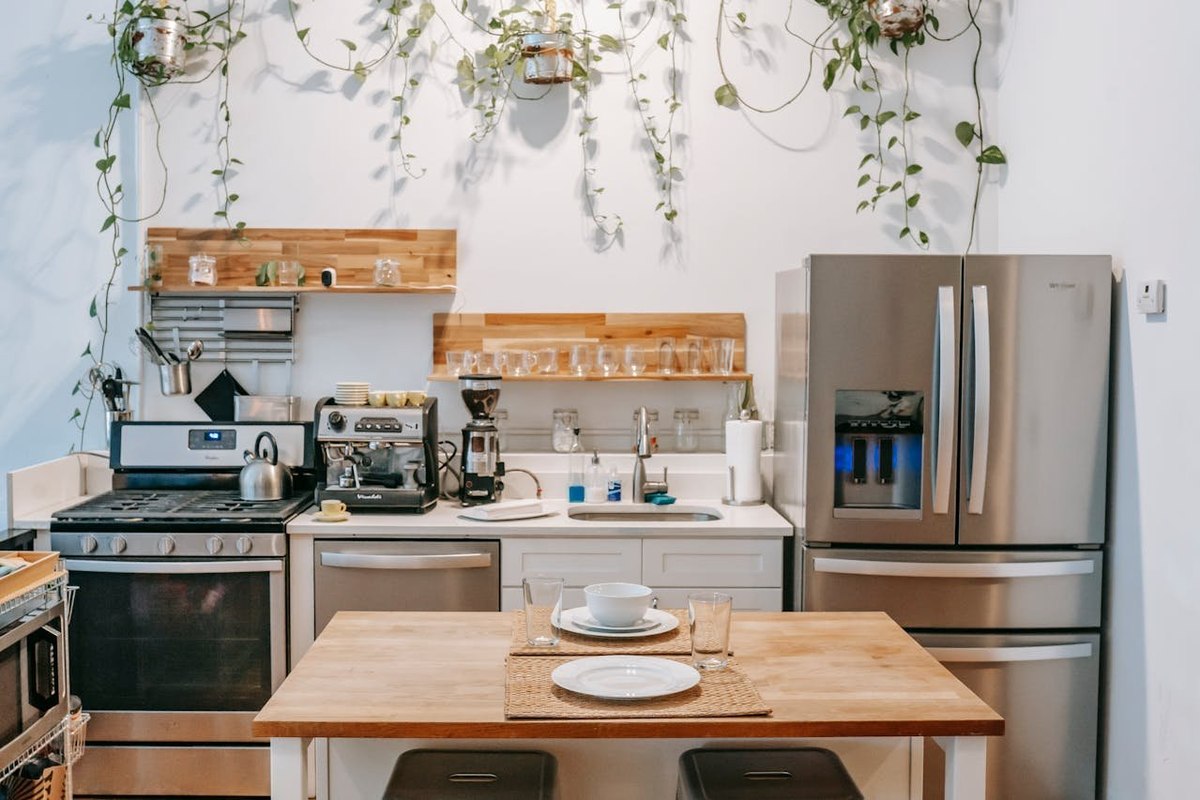Key Takeaways:
- Over seven in ten Britons (74%) bake at least occasionally.
- Over a third are frequent bakers (36%), baking at least monthly.
- Among frequent bakers, over eight in ten (83%) rate price as an important factor when purchasing appliances
From value-driven giants like Beko to premium specialists such as Miele, and from design-focused Zanussi to built-in kitchen offerings by Neff, the UK domestic appliance market is both diverse and competitive. For Britons, appliances aren’t just background utilities - they support everyday cooking and, increasingly, the kind of home baking that’s become a national pastime.
From the popularity of The Great British Bake Off to the rise of kitchen-centric social media trends, baking has pushed ovens and mixers from afterthoughts to centre stage. That makes bakers an especially important group to examine with respect to how people approach appliance choices.
Baking habits themselves show just how varied the picture is. Around three in four Britons (74%) say they bake at least occasionally, while just over a quarter (26%) never do. The single largest group are those who bake less often than once a month, making up 36% of the population. Regular bakers are far fewer: 14% bake once a month, 11% several times a month, and 7% once a week. Only small minorities bake several times a week (3%), daily (1%), or more than once a day (virtually none).
To explore how baking frequency shapes consumer behaviour, we’ve split this audience into two groups: frequent bakers (those who bake at least once a month — around 36% of Britons) and occasional bakers (those who bake less often than that — around 36%). This contrast highlights how baking as a routine activity, rather than an occasional pastime, links to different behaviours and expectations in the kitchen.
When it comes to purchasing large electrical items, price dominates across both groups, cited by 83% of frequent bakers and an even higher 90% of occasional ones. But beyond cost, their priorities diverge.
Frequent bakers place more weight on energy rating (51% vs. 46%) and internal capacity (33% vs. 25%), reflecting a stronger focus on efficiency and practicality. Occasional bakers, meanwhile, lean more on fit and reassurance. They are more likely to emphasise size, in terms of an appliance’s ability to fit into a specific space (63% vs. 55%), brand name (40% vs. 32%), and retailer reputation (36% vs. 30%) when making choices.
Brand perceptions in the UK appliance market
As retailers prepare for the festive shopping season, brand perceptions show how some of the UK’s major appliance makers are positioned in consumers’ minds.
Over the past 12 months (2 Sept, 2024 – 3 Sept, 2025), consumers in the UK have weighed brands across measures like Value (net score), Quality (net score), Satisfaction (net score), Consideration (%), and likelihood to recommend (net score).
Miele is the clear leader on Quality (31) and Recommendation (18), reinforcing its premium reputation. It also ranks highest on Consideration (23%), edging out Beko (21%) and Zanussi (20%) — an interesting spread given the brands sit in very different price tiers.
Beko stands out on Value (14, the highest of the group) and Satisfaction (14), highlighting its mass-market appeal.
Zanussi (Quality 17, Satisfaction 9, Recommendation 11) and Neff (Quality 17, Satisfaction 6, Recommendation 10) cluster together in the mid-tier, with both earning recognition for quality behind Miele.
The picture highlights a market defined by trade-offs: Miele dominates on perceived quality and advocacy, Beko leads on Value and Satisfaction, while Zanussi and Neff hold steady but less distinctive positions.
Baking may be a cultural pastime, but it also sheds light on how Britons think about the appliances they buy. Frequent bakers bring sharper expectations around efficiency and capacity, while occasional bakers lean more on reassurance from price, fit, and brand trust. For the market as a whole, this shows that lifestyle habits in the kitchen translate directly into what people value when making purchase decisions, and why understanding those habits is key to connecting with consumers.
Methodology: YouGov Profiles is based on continuously collected data through rolling surveys, rather than a single limited questionnaire. Figures are drawn from responses collected between 27 August 2024 and 28 August 2025, using a 52-week dataset updated weekly. Data is nationally representative of adults (18+) in Great Britain and weighted by age, gender, region, education, and social grade.
YouGov BrandIndex collects data on thousands of brands every day. This chart compares domestic appliance brands’ Quality, Value, Satisfaction, and Recommend score are based on the questions:
Quality: Which of the following major appliance brands do you think represents good/poor quality?
Value: Which of the following major appliance brands do you think represents good/poor value for money?
Satisfaction: Of which of the following major appliance brands would you say that you are a “satisfied/dissatisfied” customer?
Recommend: Which of the following major appliance brands would you recommend to a friend or colleague?
Scores are reported as net scores from –100 to +100.
Consideration is based on the question: When you are in the market next to purchase a major appliance, from which of the following would you consider purchasing? and is reported as a percentage.
Scores are based on daily UK surveys weighted by age, gender, region, social grade, and ethnicity. The sample size ranges from 25,533 to 25,815 between 2 Sept 2024 to 3 Sept 2025.
Photo by Charlotte May on Pexels
